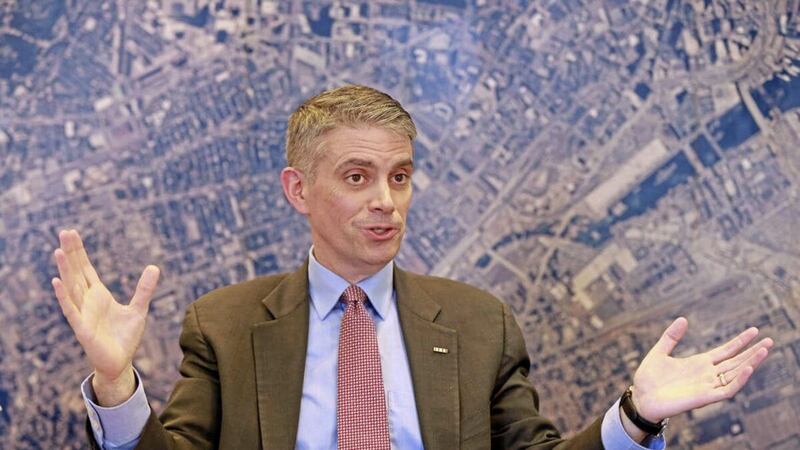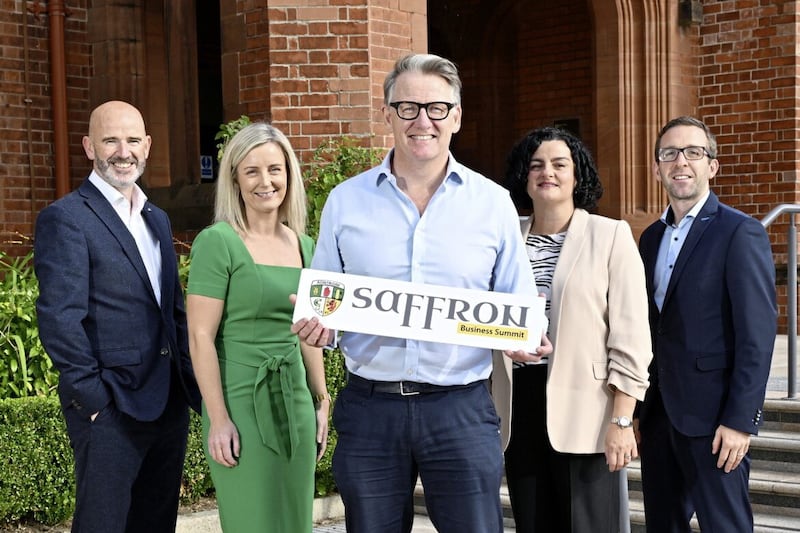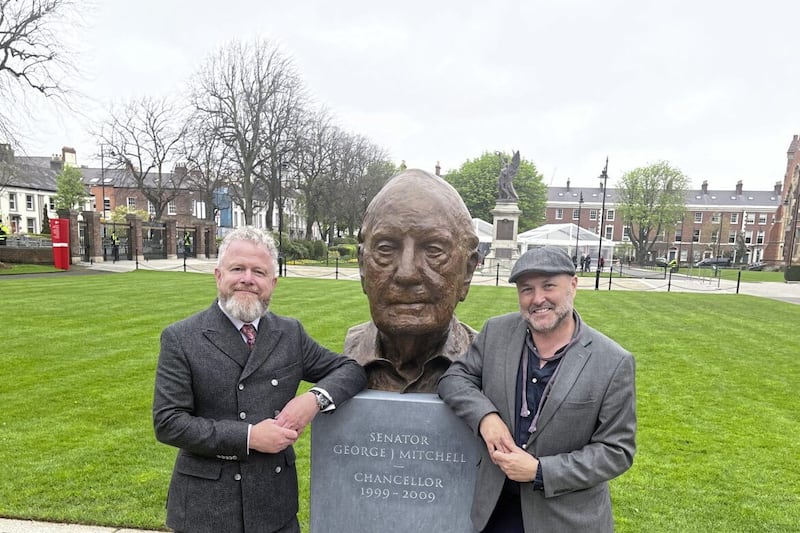FOR the last few years Belfast’s sister city relationship with Boston has been going from strength to strength.
A big part of this comes from the direct support of the Mayor of Boston, Marty Walsh. Boston’s charismatic young first citizen has gone out of his way to understand Belfast, visit it when he can and support it on many different fronts, particularly by encouraging his appointees, staff and the wider Boston community to support worthwhile projects and initiatives here.
For instance, Marty Walsh, when needed, helped the Odyssey Trust to bring the massively successful Friendship Four college ice hockey tournament to Belfast, encouraging Boston area colleges to attend and putting his personal stamp on it through direct support when the event was launched in Boston a few years back.
One of my highlights of 2017 was a talk given in Belfast by one of Walsh’s appointees Brian Golden, director of the Boston Planning & Development Agency (BPDA). As the planning and economic development agency for the City of Boston, BPDA encompasses the former Boston Regeneration Authority ((BRA) which was established in 1957 and the Economic Development and Industrial Corporation (EDIC) established in 1971.
The BRA is widely credited as the key authority which has physically transformed Boston over the last 50 years. The BPDA is charged with growing the tax base and private jobs market, training the workforce, encouraging new business to locate in Boston and existing businesses to expand and planning the future of Boston’s neighbourhoods.
The BPDA also takes planning decisions, identifies height and density limits, sets standards for building construction, produces research and is also tasked with ensuring Boston retains its distinctive built character.
To do all of that, it has the jurisdiction to buy and sell property, to vest (compulsory purchase) land and grant tax concessions to encourage commercial and residential development. Few other cities in the world have an agency with such all-encompassing powers, all with no direct political control.
Golden is a mayoral appointee and the decision-taking five-member board of the BPDA is also made up of mayoral and Governor appointees, with the Mayor’s four appointees ratified by the elected representatives of Boston City Council.
So, unlike most other city planning authorities, the BPDA’s decisions do not go back to an elected committee of councillors for approval. The board meetings happen every three weeks and at November’s meeting just past, over 1.4 million sq. feet of development was approved. With 200 staff, this a one-stop-shop that really gets things done.
Golden was in Belfast for Aisling Events’ excellent Belfast Homecoming conference where he presented the BPDA’s work and participated on a panel discussing development issues. He also generously agreed to present to a private sector group in the boardroom of one of Belfast’s leading commercial estate agencies, Lambert Smith Hampton.
Having more time than at the conference, Golden’s boardroom session allowed him to get into a much more detailed discussion about the work of the BPDA and what it takes to get large projects delivered in Boston.
Golden is a Harvard graduate, a lawyer by training and a 20-year army veteran having served in Bosnia, Iraq and Israel/West Bank. He is a very impressive presenter and the local group of consultants and developers were almost mesmerised by his descriptions of how the BPDA has attracted some of the world’s largest companies to Boston by ensuring the land, buildings and incentives are all tailored to meet those companies’ needs.
And we’re not talking 50,000 square feet and 500 jobs here - more like one million square feet and 8,000 jobs per project. It was inspirational.
Belfast is not at that level but it has the potential to deliver major projects in the near future and while we do not have an equivalent to the BPDA, with decent political will and the right technical people in the important positions, a new chief planner will be announced in the new year for instance, there is a chance.
The will and determination has to be there though. Also welcome is the introduction of a City Deal for Greater Belfast announced in the Budget, meaning there would also appear to be additional funding for major infrastructure projects. So 2018 has the potential to be a very big year for the city.
One of the people Brian Golden referred to a number of times in his talk was the legendary urban planner Robert Moses, who in his time in various senior positions in New York over a 40-year period built seven bridges, 700 miles of expressways and parkways linking the city with the suburbs, 20,000 acres of parkland and 658 playgrounds. He also can lay claim to the delivery of the Lincoln Center, the United Nations headquarters and three university campuses.
The sheer scale of his achievement is astonishing. He was, without question, in words of his biographer, Robert Caro, "the greatest builder in the history of America, perhaps the greatest builder in the history of the world".
Caro’s biography ‘The Power Broker’ won a Pulitzer prize and is regarded as a must read for anybody interested in urban development though it is also a study of power and the delicate balance that needs to be struck between decisions and communities.
Moses never held elected office and yet successive Mayors and Governors of New York often bent to his will. When it was completed in 1974, New York City was in decline and overall, Caro does not cast Moses in a great light, it is estimated that over 500,000 people were displaced by his projects over the years.
More recently, there has been a revision of Moses’ lifework, as one senior politician suggested that if his biography was written today, it would be called ‘At Least He Got It Built’.
When Moses himself was criticised for the level of upheaval his building work had caused he said: “I raise my stein to the builder who can remove ghettoes without moving people as I hail the chef who can make omelettes without breaking eggs.”
The point Brian Golden was making was that you have to take bold decisions to move a city forward. It’s how you make those decisions where the difficulty often arises.
Also at the talk was one of my senior colleagues. and he very kindly bought me the Caro biography for Christmas. It’s definitely my first read of 2018.








